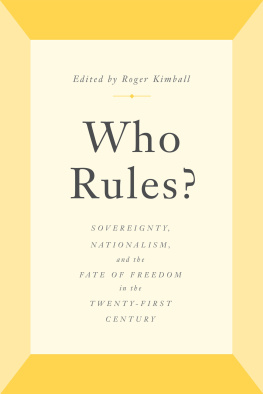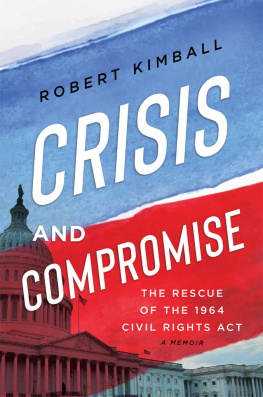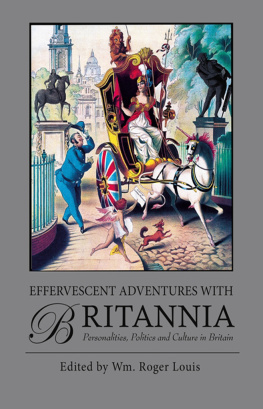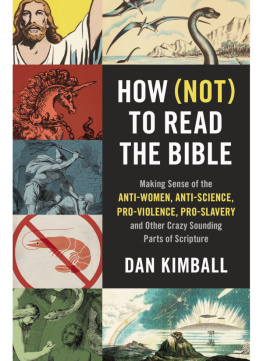Roger Kimball (editor) - Who Rules?
Here you can read online Roger Kimball (editor) - Who Rules? full text of the book (entire story) in english for free. Download pdf and epub, get meaning, cover and reviews about this ebook. year: 2020, publisher: Encounter Books, genre: Politics. Description of the work, (preface) as well as reviews are available. Best literature library LitArk.com created for fans of good reading and offers a wide selection of genres:
Romance novel
Science fiction
Adventure
Detective
Science
History
Home and family
Prose
Art
Politics
Computer
Non-fiction
Religion
Business
Children
Humor
Choose a favorite category and find really read worthwhile books. Enjoy immersion in the world of imagination, feel the emotions of the characters or learn something new for yourself, make an fascinating discovery.
- Book:Who Rules?
- Author:
- Publisher:Encounter Books
- Genre:
- Year:2020
- Rating:4 / 5
- Favourites:Add to favourites
- Your mark:
- 80
- 1
- 2
- 3
- 4
- 5
Who Rules?: summary, description and annotation
We offer to read an annotation, description, summary or preface (depends on what the author of the book "Who Rules?" wrote himself). If you haven't found the necessary information about the book — write in the comments, we will try to find it.
Who Rules? — read online for free the complete book (whole text) full work
Below is the text of the book, divided by pages. System saving the place of the last page read, allows you to conveniently read the book "Who Rules?" online for free, without having to search again every time where you left off. Put a bookmark, and you can go to the page where you finished reading at any time.
Font size:
Interval:
Bookmark:

WHO RULES?
Edited by Roger Kimball

Who Rules?
SOVEREIGNTY, NATIONALISM, and the FATE OF FREEDOM in the TWENTY-FIRST CENTURY


2020 by Roger Kimball; the individual chapters, the individual authors
All rights reserved. No part of this publication may be reproduced, stored in a retrieval system, or transmitted, in any form or by any means, electronic, mechanical, photocopying, recording, or otherwise, without the prior written permission of Encounter Books, 900 Broadway, Suite 601, New York, New York, 10003.
First American edition published in 2020 by Encounter Books, an activity of Encounter for Culture and Education, Inc., a nonprofit, tax exempt corporation.
Encounter Books website address: www.encounterbooks.com
Manufactured in the United States and printed on acid-free paper. The paper used in this publication meets the minimum requirements of ANSI/NISO Z39.481992 (R 1997) (Permanence of Paper).
FIRST AMERICAN EDITION
LIBRARY OF CONGRESS CATALOGING-IN-PUBLICATION DATA
Names: Kimball, Roger, 1953- editor.
Title: Who rules? : sovereignty, nationalism, and the fate of freedom in the 21st century / edited by Roger Kimball.
Description: First American edition. | New York : Encounter Books, 2020.
Includes bibliographical references and index.
Identifiers: LCCN 2020008126 (print) | LCCN 2020008127 (ebook) ISBN 9781641771283 (cloth) | ISBN 9781641771290 (epub)
Subjects: LCSH: SovereigntyPhilosophy. | LibertyPhilosophy.
Classification: LCC JC327 .W48 2020 (print) | LCC JC327 (ebook)
DDC 20.1/501--dc23
LC record available at https://lccn.loc.gov/2020008126
LC ebook record available at https://lccn.loc.gov/2020008127
Table of Contents

ROGER KIMBALL
VICTOR DAVIS HANSON
JAMES PIERESON
JOHN FONTE
JOHN OSULLIVAN
MICHAEL ANTON
ANGELO M. CODEVILLA
DAVID AZERRAD
CHRISTOPHER BUSKIRK
DANIEL MCCARTHY
ROGER KIMBALL

A MONG THE EPIGRAPHS that preface his recent book The Demon in Democracy: Totalitarian Temptations in Free Societies, the Polish philosopher Ryszard Legutko features a famous bit from Tocquevilles Democracy in America:
I think then that the species of oppression by which democratic nations are menaced is unlike anything which ever before existed in the world. I am trying myself to choose an expression which will accurately convey the whole of the idea I have formed of it, but in vain. I seek to trace the novel features under which despotism may appear in the world. The first thing that strikes the observation is an innumerable multitude of men all equal and alike, incessantly endeavoring to procure the petty and paltry pleasures with which they glut their lives. Above this race of men stands an immense and tutelary power, which takes upon itself alone to secure their gratifications, and to watch over their fate. That power is absolute, minute, regular, provident, and mild. It would be like the authority of a parent, if, like that authority, its object was to prepare men for manhood; but it seeks on the contrary to keep them in perpetual childhood: it is well content that the people should rejoice, provided they think of nothing but rejoicing.
It is interesting to note that the first part of this passage also serves as an epigraph for Jacob Talmons classic The Origins of Totalitarian Democracy, a book that figures below in James Pieresons essay on the evolution of the United States. Piereson traces the development of the country from a union of states (which is what the Founders had forged) into a nation in the modern sense under Lincolns guidance, and then, in recent decades, into a nation besieged by the centrifugal forces of multiculturalism and identity politics.
Talmon, writing in the 1950s, makes a critical distinction between liberal and totalitarian democracies. The essential difference between the two, he writes, is in their different attitudes to politics. The liberal approach assumes politics to be a matter of trial and error; it regards political systems as pragmatic contrivances of human ingenuity and spontaneity. Furthermore, it also recognizes a variety of levels of personal and collective endeavor, which are altogether outside the sphere of politics.
By contrast, the totalitarian version of democracy is based upon the assumption of a sole and exclusive truth in politics. Talmon calls this political Messianism. Readers of Norman Cohns classic The Pursuit of the Millennium will be familiar with the concept (as indeed will readers of Karl Marx). The messianic quality can be seen partly in the totalizing aspect of the visionit is meant to organize and control the whole of our livespartly in the presumption that it is both 1. inevitable and 2. morally superior to what came before. [I]t postulates, Talmon writes, a preordained, harmonious and perfect scheme of things, to which men are irresistibly driven, and at which they are bound to arrive.
Communism was one form of political Messianism. The supposedly post-historical liberal consensus that Francis Fukuyama championed in The End of History is another, kinder, gentler form of utopian presumption. It is worth noting that Fukuyamas book figures as a cautionary marker in several of the essays that follow. Why? Because it is precisely that overweening liberal consensusthe increasingly bureaucratic and notably illiberal liberalism espoused by the administrative statethat we set out to challenge in this volume.
Talmon was onto something deep, I believe, when he identified the paradox of freedom as the recognition that freedom is unfree so long as it is wed to an exclusive pattern of social existence, even if this pattern aims at the maximum of social justice and security. The key is this: Do we take men as they are and look to politics to work from there? Or do we insist upon treating men as they were meant to be, and would be, given the proper conditions?
The former describes the traditional, genuinely liberal view of freedom. The latter describes what Talmon calls totalitarian democracy. A classic source for the latter view is Jean-Jacques Rousseau. In The Social Contract, Rousseau says that anyone who would dare to undertake the institution of a government must think himself capable, as it were, of changing human nature (my emphasis).
Contrast that hubristic ambition with James Madisons acknowledgment, in Federalist 10, that different men have different and competing interests and that the first object of government is to protect those differences and the diversity in the faculties whence they arise.
The real battle that has been joinedand it is a battle that is in the process of forging a great political realignmentis not between virtuous progressive knights riding the steeds of liberalism, on the one hand, and the atavistic forces of supposedly untutored darkness represented by populism, on the other.
No, the real battle is between two views of liberty. One is a parochial view that affirms tradition, local affection, and the subordination of politics to the ordinary business of life. Chris Buskirk touches on this point in his essay below:
Next pageFont size:
Interval:
Bookmark:
Similar books «Who Rules?»
Look at similar books to Who Rules?. We have selected literature similar in name and meaning in the hope of providing readers with more options to find new, interesting, not yet read works.
Discussion, reviews of the book Who Rules? and just readers' own opinions. Leave your comments, write what you think about the work, its meaning or the main characters. Specify what exactly you liked and what you didn't like, and why you think so.









